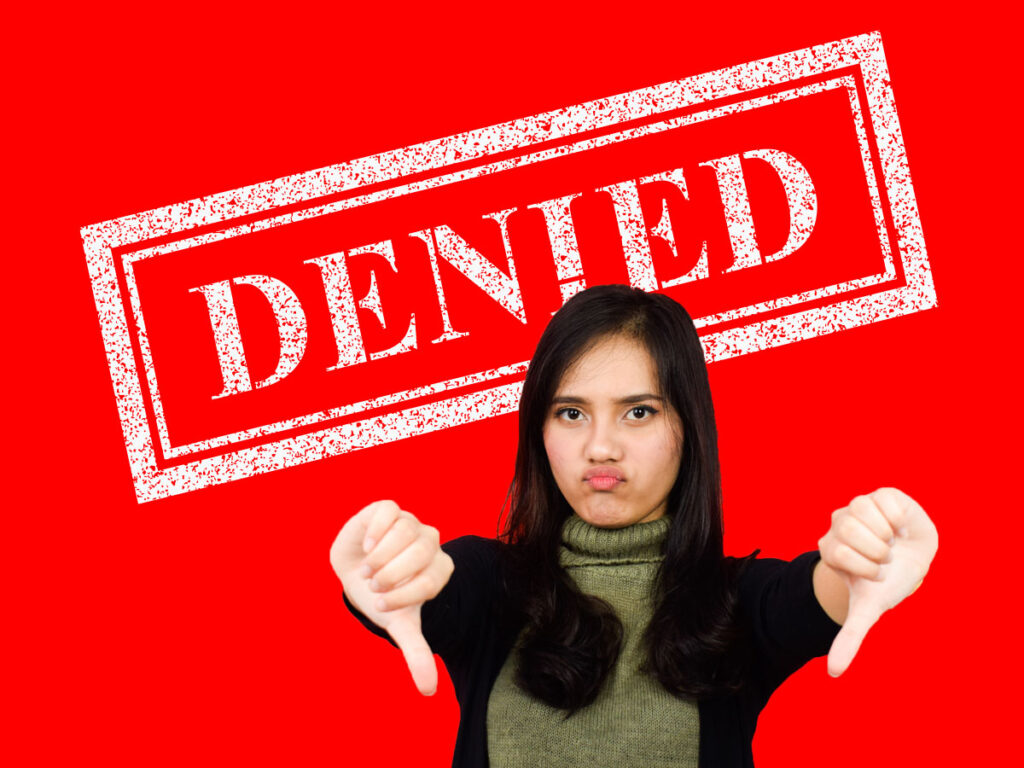
Medical debt is a significant financial burden for many people in the United States. According to a study by the Consumer Financial Protection Bureau, over 43 million Americans have medical debt on their credit reports. One common cause of medical debt is the failure of health insurance plans to cover medical bills.
Why Did Your Health Insurance Fail To Cover Your Medical Bills?
There can be many reasons your health insurance failed to cover your medical bills. The quickest way to determine the reason is to look at your Explanation of Benefits (EOB) or denial letter or call the member services number on your insurance card.
#1. Out-Of-Pocket Costs:
Even if your insurance policy covers your medical care, you may still be responsible for paying a portion of the cost, known as out-of-pocket costs. These are expenses for medical care that aren’t covered by your insurance.
Out-of-pocket costs:
- Deductible – the amount you pay out of pocket before your insurance starts to pay their part
- Co-pay – a fixed amount you pay when you obtain covered medical expenses
- Co-insurance – the percent of covered medical expenses you pay after your deductible in addition to your co-pay
- Services or items not covered by your insurance policy
Out-of-pocket expenses can leave you underinsured and at great risk for medical debt, causing many to forgo needed medical care. Sadly, most people with medical debt have health insurance – even expensive insurance! This is why medical financial literacy and a solid understanding of your insurance policy are so important.
#2. Not Specifically Outlined In Your Health Benefits or Excluded
Some health insurance policies have limited benefits or don’t cover certain types of medical care. For example, they may not cover mental health services or prescription medications. If you received medical care not covered by your insurance plan, your insurance will deny payment.
#3. Typo, Error, or Missing Information
Sometimes insurance companies need more information from your provider before processing your claim, such as CPT codes, diagnosis codes, or medical records indicating the need for the items.
Additionally, the provider may need more information from you such as your insurance information. They may need to correct an error such as a wrong birthdate or misspelled name.
#4. Wrong Billing or Diagnosis Codes
CPT codes indicate the specific services and procedures provided during your medical care. If the wrong billing codes are used, your insurance may not cover the bill. For example, a CPT code for diagnostic services instead of screening services frequently leads to unexpected bills during preventive care visits. Furthermore, the ICD-10-CM diagnosis code must align with the billing codes, or the claim may be denied.
Wrong codes are one of the most common reasons insurance denies payment for medical services.
#3-4 on this list can be easily remedied once your provider resubmits a correct claim to the insurance company.
#5. Timely Filing Requirements
Your claim will be denied if not filed with the insurance company by their deadline. Each company and policy has its own timely filing requirements.
If your in-network provider fails to meet this deadline you will not be responsible for the bill. However, if you are responsible for filing the claim and miss the deadline, you will be stuck with the bill.

#6. You Missed Open Enrollment or Other Policy Period
Open enrollment is the period when you can enroll in a health insurance plan or make changes to your existing plan. For the ACA Health Insurance Marketplace, open enrollment runs November 1st through January 15th (though some states may extend it). If you missed the enrollment period, you may not have insurance coverage at the time of your medical care.
Health insurance plans typically run every year from January 1st to December 31st. If you received medical care in one plan year and your insurance coverage changed in the next plan year, your new insurance may not cover the bill.
Frequently Asked Question: Will My New Insurance Cover an Old Medical Bill?
Whether or not your new insurance will cover an old medical bill depends on a few factors, such as when the medical care was received and the terms of your new insurance plan.
If the medical care was received before you enrolled in your new insurance plan, your new insurance is unlikely to cover the old medical bill. Insurance coverage is usually only effective from the date of enrollment onwards.
However, some insurance plans may have a provision for retroactive coverage. This means the plan will cover medical care received before enrollment, but only under certain circumstances, such as a lapse in insurance coverage or a qualifying life event.
#7. Frequency or Quantity
Your health plan may limit the number of services or items it covers. For example, your policy may only pay for one well check every 365 days, certain blood testing twice a year, or cover only a limited number of physical therapy appointments. Additionally, health plans frequently only pay for a 30 or 90-day supply of your prescription drugs, limiting how often you can get refills using insurance. If you obtain more healthcare services or items than what your insurance covers, you’ll be on the hook for the extra services or items.
#8. Out-of-Network
Medical providers that are in-network have a contract with your health coverage plan. Some plans, like HMOs, won’t cover out-of-network providers, except for emergency care. If you go out-of-network for healthcare with one of these plans, your insurance claim will likely be denied.
Other types of health insurance plans cover out-of-network providers with higher out-of-pocket costs.
#9. Pre-authorization or Pre-approval Was Required But Not Submitted
Your insurance policy may require pre-authorizations or pre-approvals before they cover certain healthcare services, items, or drugs.
You should always contact your insurer to verify that your planned treatment is covered and if pre-authorization is required. If you don’t follow your health plan’s rules regarding pre-approvals, your claim will be denied for payment.

#10. Automatic Claim Denials
In a jerk move, insurance companies deny covered care automatically as part of their for-profit business model. An investigation by ProPublica uncovered systems that deny claims in bulk without any review used by insurance giants CIGNA and United Healthcare.
This saves the insurance companies money because most people don’t appeal. In 2021, HealthCare.gov consumers appealed less than two-tenths of 1% of denied in-network claims. Therefore, automatically denying claims is highly profitable for insurance companies, yet harms patients.
What Can I Do If Insurance Doesn’t Pay?
If your insurance didn’t pay because the item wasn’t covered under your policy you can’t appeal. Furthermore, you are responsible for any cost-sharing and out-of-pocket expenses.
However, you can appeal the denial if you understand your policy and know your claim should be paid. Call the number on your insurance card and follow the instructions on your Explanation of Benefits (EOB) or denial letter.
This isn’t a complete list of all the reasons insurance companies deny your medical bills but a basic introduction. Due to the complexity of this topic, we will cover appeals in upcoming articles.
Takeaways
- You need to have a good understanding of your insurance plan and policy’s rules, what’s covered, and what’s excluded.
- The quickest way to determine why insurance didn’t pay your medical bill is to look at your Explanation of Benefits (EOB) or denial letter. You can also call the member services number on your insurance card.
- If the item or service isn’t covered under your policy or the amount you owe is part of your cost-sharing, you can’t appeal.
- If the claim has a typo, wrong code, or other paperwork error, it can usually be resolved by having the provider resubmit a corrected claim.
- Insurance companies often automatically deny legitimate claims to increase their profits.
- Pay attention to all deadlines such as filing deadlines if you are responsible for filing the claims, and deadlines for filing appeals.
- If you understand your policy and need to appeal a claim denial, call the number on your insurance card and/or follow the instructions on your Explanation of Benefits (EOB) or denial letter.
